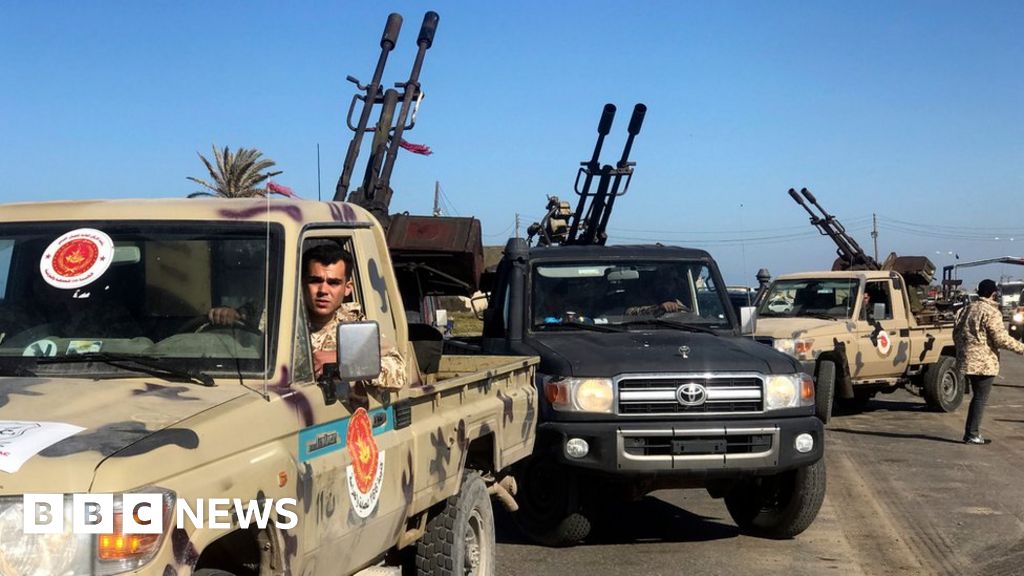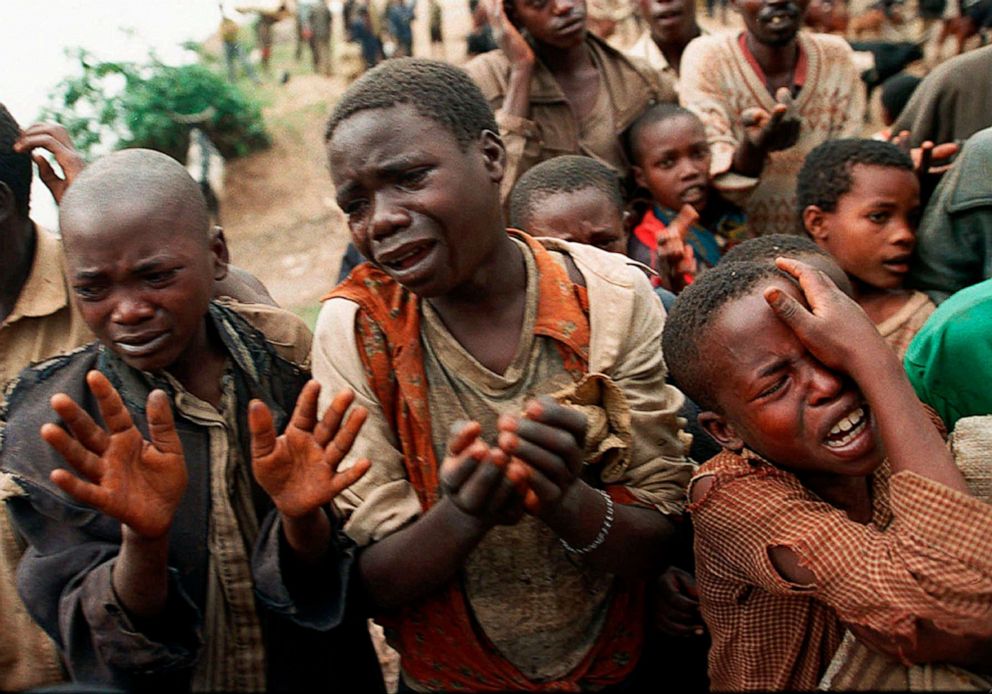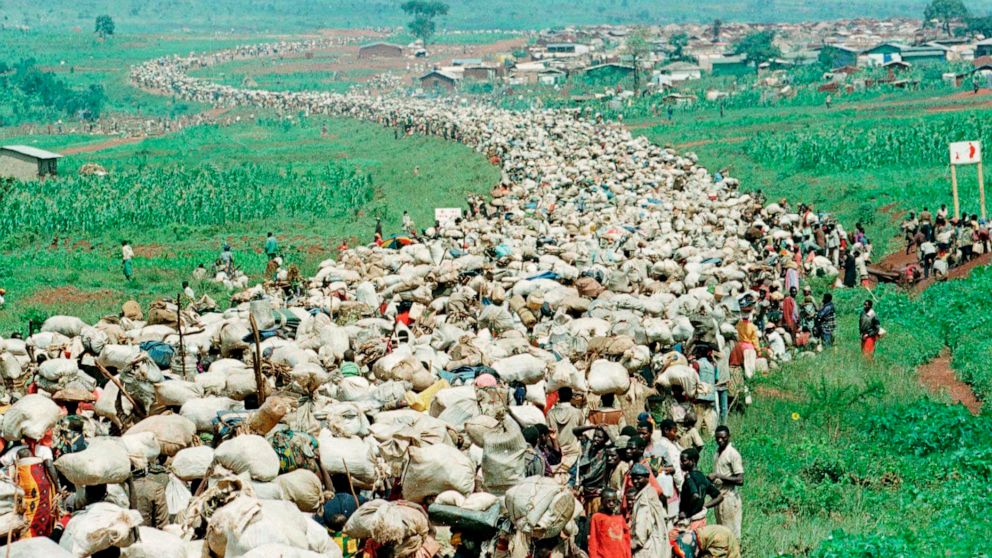Forces loyal to Libya's renegade General Khalifa Haftar are marching in the capital, Tripoli, igniting fears of renewed war in the chaos-wracked country.
The assault by Haftar's self-proclaimed Libyan National Army (LNA) raised fears of a full-blown battle in Tripoli, the seat of a United Nations-backed government that is protected by an array of militias holding sway over the city's economy and institutions.
Following Haftar's move on Thursday, the Tripoli-allied militias mobilised for "war" by deploying troops and moving weapons from the coastal towns of Misrata and Zawiya to areas around the capital.
As skirmishes broke out near Tripoli on Friday, Antonio Guterres, the UN chief who was in the capital to help organise a conference aimed at hammering out a plan for elections, headed to the eastern city of Benghazi to meet Haftar.
But he wrote on Twitter later in the day: "I leave Libya with a heavy heart and deeply concerned. I still hope it is possible to avoid a bloody confrontation in and around Tripoli."
The escalation threatens to undermine UN-led efforts to bring stability to a country that has for years been split between the internationally recognised Government of National Accord (GNA) in Tripoli and a rival administration in the east allied to Haftar.
The 75-year-old former army officer's rise, including advances on strategic oil fields and port cities, has come on the back of support by countries such as neighbouring Egypt and the United Arab Emirates. He has portrayed himself as the only solution for Libya's instability, but many in the country fear he could try to reinstate authoritarian rule.
Haftar's rise
After decades of exile in the United States, Haftar returned to Libya in 2011 to take part in the uprising against longtime ruler Muammar Gaddafi. In the years that followed Gaddafi's removal and killing, various armed groups vied for control in of the oil-rich country.
Amidst the chaos, Haftar launched in 2014 Operation Dignity to "cleanse" the country of what he called "terrorist" militias.
In July 2017, Haftar said his forces had seized Benghazi after a bloody three-year battle. Last year, the LNA gained control of Derna, the last bastion of opposition against Haftar in the east of the country.
Then in January this year, he launched a new offensive into oil-rich Fezzan in Libya's south-west. The LNA made deals with the local tribes and overran the region without a major fight.
Haftar's "ultimate goal when he went into Fezzan was to take Tripoli", said Jalel Harchaoui, a research fellow at the Netherlands-based Clingendael Institute.
"You cannot rule Libya unless you control Tripoli. Because all the money, diplomatic missions and most of the population is there - everything is concentrated there."
 |
| Haftar, right, meets Guterres in the eastern city of Benghazi [AFP] |
Stunned by LNA's southern advance, the UN scrambled to mediate between Haftar and Fayez al-Serraj, the head of the GNA. The pair met in Abu Dhabi in February, and the UN said they had agreed to hold elections by the end of the year.
In March, the UN's mission in Libya announced that a national conference would be held on April 14-16 to discuss a timetable for long-delayed elections and unify the country.
Harchaoui said Haftar agreed to the election plan to buy more time for his long-promised offensive on Tripoli.
"Haftar used UN diplomacy to make military progress. His aim is to change the facts on the ground to his political advantage."
'Tide is turning'
Speaking from Benghazi in eastern Libya, Mansour El-Kikhia, a professor at the University of Texas, argued that Haftar was likely to succeed in his Tripoli push.
"It's a foregone conclusion that Haftar will take over Tripoli and end the reign of the militias," he claimed.
"Even the residents of Tripoli are sick and tired of the status quo. It's not because of a love for Haftar. It's a desire for peace, quiet and normalcy. As things stand today, it's a mess. The militias are kleptomaniacs. They loot the country's wealth while people are going hungry."
Describing the armed groups allied to Tripoli as "kids with guns", El-Kikhia said they were no match for Haftar's estimated 25,000 forces, who "are well trained and hardened after four years of fighting against 'terrorists'."
But other analysts disagreed.
When asked if Haftar was likely to succeed, Saleh El Bakkoush, a Tripoli-based political analyst, replied: "Absolutely not."
Noting that forces supporting the Tripoli-based government captured on Friday more than 140 LNA-backed troops at a checkpoint some 30km west of the capital, El Bakkoush said: "There's great excitement among the GNA-allied troops … The tide is turning."
 |
| Fayez al-Sarraj, the head of GNA, visits military and security commanders [Mahmud Turkia/ AFP] |
'Little room for de-escalation'
Emad Badi, a non-resident scholar at the Middle East Institute, said that unlike the tribal groups Haftar subsumed in the south, the militias in and around Tripoli were likely to put up resistance.
"They see Haftar's attack as an existential threat," Badi said from the British capital, London. "The military forces in the west have a vested interest in continuing to exist, because that leads to them having some sort of benefit, whether money wise or through illegal means of rent-seeking."
|
|
|
Libya Quartet meets in Tunis to reconcile warring factions (3:00)
|
Harchaoui said residents in the west of the country "don't care about liberal democracy as much as they did eight years ago.
"But compared to the rest of Libya, there is still a decent percentage of people there who have no interest in the authoritarian model Haftar promises."
As foreign countries expressed growing alarm over the potential of renewed conflict, analysts underlined the importance of the response from Misrata, a wealthy city east of the capital and home to nearly half a million people and some of the most powerful militias backing the GNA.
On Friday, Tripoli-allied forces reportedly moved troops and machine gun-mounted vehicles from Misrata to the capital, vowing to repel Haftar's assault on the city.
"Misrata will resist," said Harchaoui.
But El-Kikhia disagreed: "They aren't going to fight him if they can avoid it. They will lose."
Meanwhile, Badi, at the Middle East Institute, said that "open conflict" was likely to break out in the coming days.
Noting the outcome of Haftar's meeting with Guterres, he said: "There is now very little room for de-escalation. If Haftar's forces do not disengage, there will be open conflict for a while."
Let's block ads! (Why?)
https://www.aljazeera.com/news/2019/04/libya-haftar-ultimate-goal-fear-full-blown-war-190405214022194.html
2019-04-06 07:56:00Z
52780261149217







